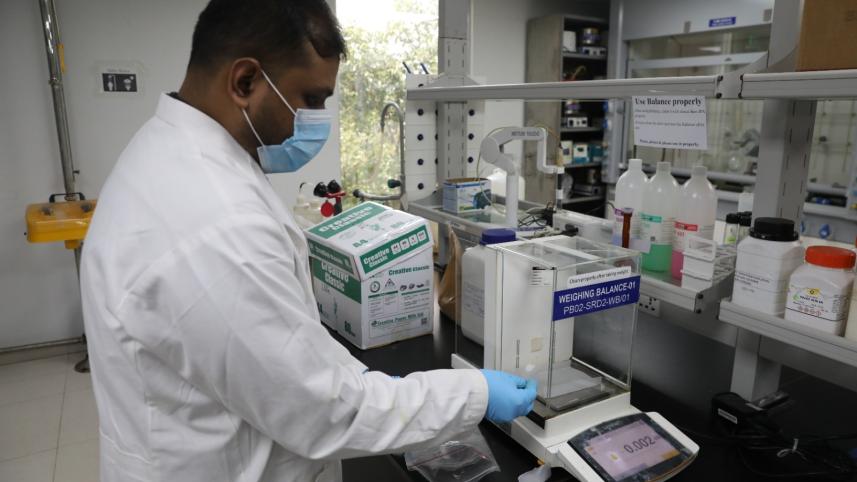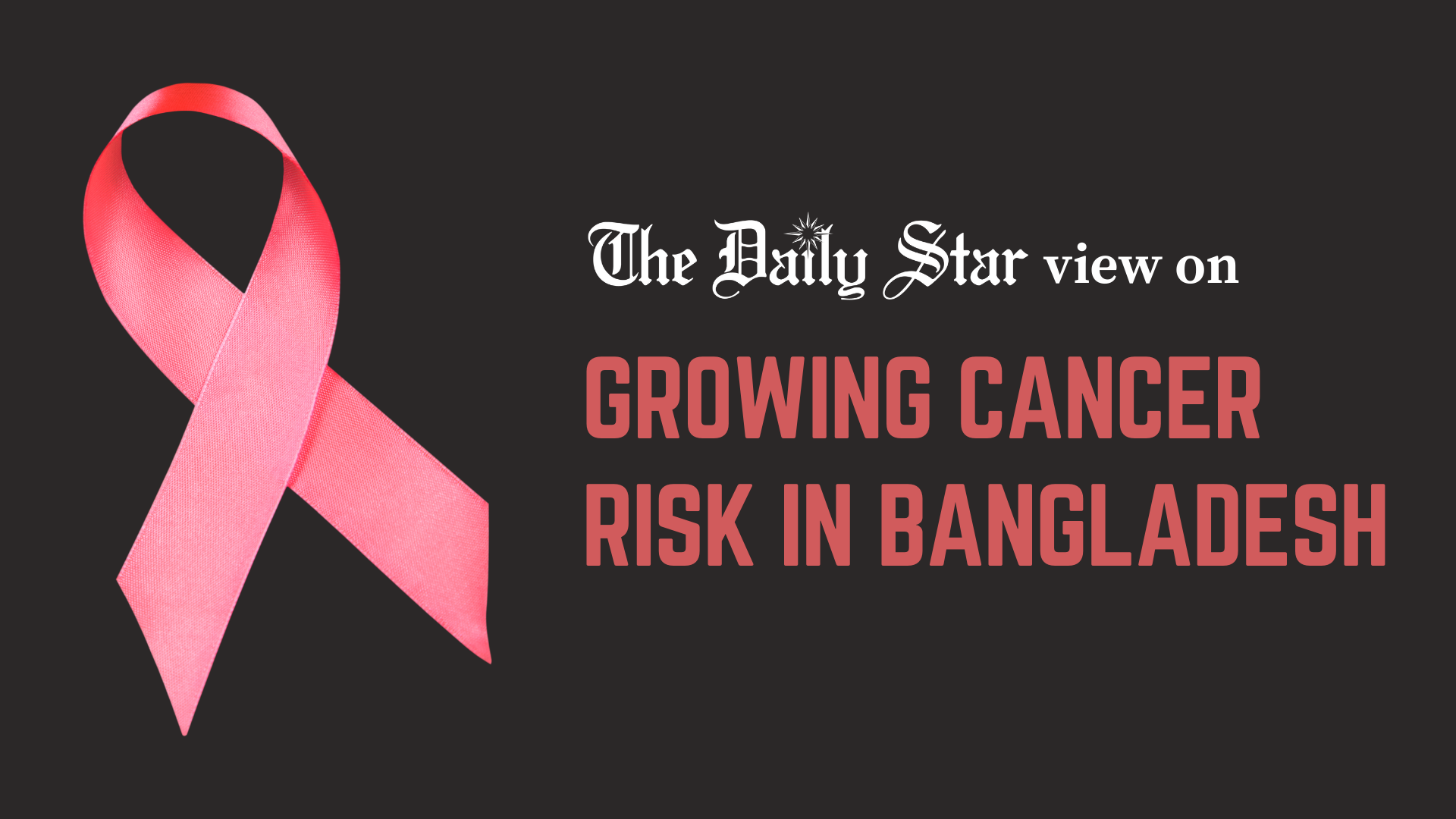How to keep cancer drugs affordable after LDC graduation

As Bangladesh prepares to graduate from Least Developed Country (LDC) status in 2026, pride in this achievement comes with deep concern. Graduation will end many privileges that have kept essential medicines affordable, particularly for cancer patients. Without urgent action, thousands may find lifesaving drugs suddenly priced out of reach.
Cancer is already a formidable challenge. A Prothom Alo report, citing a landmark study by Bangabandhu Sheikh Mujib Medical University (BSMMU) this year, revealed that cancer accounts for 12 percent of total deaths in one area of Kishoreganj. The study, covering over two lakh people, found that among men, lung, throat, and stomach cancers dominate, while breast and cervical cancers lead among women.
The outlook is grim. The World Health Organization (WHO) and the International Agency for Research on Cancer (IARC) project that by 2050, new cancer cases in Bangladesh could more than double from 167,256 in 2022. This surge threatens to overwhelm a health system already stretched thin.
So far, cancer drugs have remained relatively affordable due to a pharmaceutical patent waiver under the TRIPS (Trade-Related Aspects of Intellectual Property Rights) agreement of the World Trade Organization (WTO). This lifeline has turned Bangladesh into a hub for affordable generic cancer drugs. For instance, Beacon Pharmaceuticals produces Tagrix, a version of osimertinib used to treat a specific type of lung cancer, selling for Tk 9,900 to Tk16,500 per month. Compare this to AstraZeneca's branded version, Tagrisso, which costs over Tk 700,000 per month in Canada and more than 100,000 rupees in India. For Bangladeshi patients, these local alternatives have meant the difference between life and death.
What happens after graduation?
Once Bangladesh graduates from LDC status, the TRIPS waiver will no longer apply. The consequences could be devastating. Local companies will have to pay royalties and meet stricter compliance requirements, raising the cost of these drugs by 20 to 50 percent. For lung cancer patients, monthly treatment with Tagrix could rise from Tk 10,000 to 35,000, or even Tk 50,000.
Without special licences, some drugs may vanish from the local market. Patients might then be forced to import patented drugs at global prices. According to the Directorate General of Health Services, around 69 percent of all medical expenses in Bangladesh were paid out-of-pocket in 2020—among the highest rates in Asia during that period. Research shows that half of cancer-affected families face catastrophic health spending, often selling property, taking loans, or abandoning treatment. Even a modest rise in costs can push families into ruin.
Under WTO rules, all member countries must follow TRIPS, which protects patents on medicines, usually for 20 years or more. Article 66.1 allows least developed countries to delay full TRIPS compliance until July 1, 2034, but only while they remain LDCs. Bangladesh's graduation will end this benefit in 2026. The WTO's pharmaceutical waiver, which lets LDCs avoid enforcing patents on medicines until 2033, will also no longer apply.
After graduation, Bangladesh will have to enforce pharmaceutical patents unless it uses compulsory licensing or negotiates voluntary licences with patent holders. Article 31 of TRIPS allows local production of patented drugs without the patent holder's consent, provided royalties are paid. Article 31(b) permits countries with production capacity, like Bangladesh, to make generics for export to poorer nations. However, this requires clear legal frameworks and strong political will.
What is the way forward?
The loss of the waiver can be managed with bold policies. India, for example, adopted WTO patent rules in 2005 but added safeguards. Section 3(d) of India's Patents Act (1970) prevents "evergreening"—extending patents through minor modifications. In 2013, India's Supreme Court used this clause to reject Novartis's patent on the leukaemia drug imatinib, ensuring generics continued. In 2012, India issued a licence to a local company to produce sorafenib, a liver cancer drug, slashing the price by 97 percent—from 280,000 rupees to 8,800 rupees per month.
China took a different route. After joining the WTO in 2001, it negotiated directly with pharmaceutical companies. Through its National Reimbursement Drug List and procurement programmes, it cut cancer drug prices by 50 to 70 percent nationwide, making lifesaving medicines accessible to millions.
The lesson is clear: robust legal measures and strategic negotiations can keep medicines affordable even under strict patent rules.
Bangladesh must act now to avoid a healthcare catastrophe after 2026. It needs to invest in local innovation so scientists can develop medicines at lower costs using original models as blueprints. Clear rules for compulsory licensing must be finalised to ensure local production of essential drugs during emergencies. The government should also negotiate voluntary licences with multinational firms to secure fair prices.
Expanding domestic production of active pharmaceutical ingredients is crucial to reducing dependence on imports. National subsidy programmes for cancer treatment are needed to shield low-income families from financial collapse. Avoiding trade deals that impose stricter intellectual property rules than the WTO requires will also be vital.
Finally, Bangladesh should join forces with other graduating LDCs to lobby at the WTO for an extension of the pharmaceutical waiver, framing it as a public health necessity.
SM Saifur Rahman is a chemical engineer and president of the Bangladesh API and Intermediates Manufacturing Association (BAIMA). He can be reached at baima5aug@gmail.com.
Views expressed in this article are the author's own.
Follow The Daily Star Opinion on Facebook for the latest opinions, commentaries and analyses by experts and professionals. To contribute your article or letter to The Daily Star Opinion, see our guidelines for submission.




 For all latest news, follow The Daily Star's Google News channel.
For all latest news, follow The Daily Star's Google News channel. 


Comments